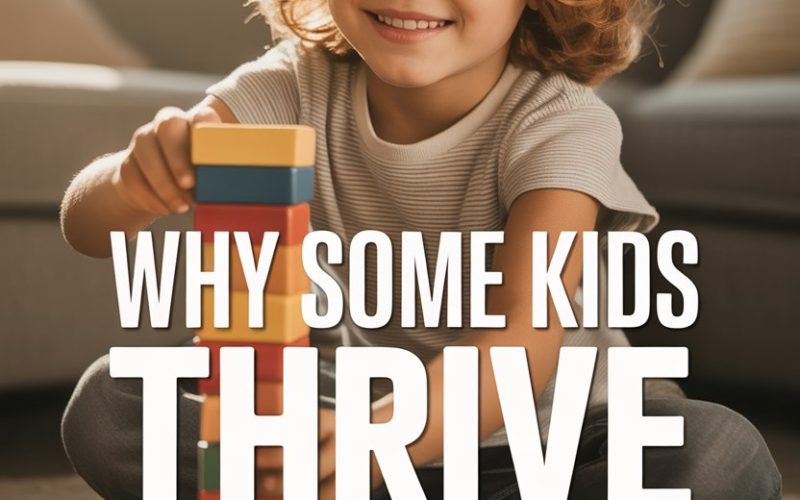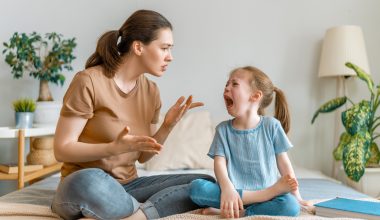Divorce. Just the word can make any parent’s stomach clench, conjuring visions of therapy bills and tense handovers at the local café.
Yet, in family life, surprises abound—and sometimes, kids absolutely shine after their parents split.
Let’s talk about why that happens, what the research says, and yes, what you can do to help your child do more than “get through” this big change.
Resilience Isn’t Just a Buzzword
Resilience: it’s what we all hope our children have, especially when life takes a detour. When two parents uncouple, it’s tempting to imagine only the negatives.
But here’s a twist—studies, like those discussed by child psychologist Dr. E. Mavis Hetherington, have shown that many children adapt well, and some even thrive.
How? Kids are natural adapters, especially when the adults around them keep things steady. The key to resilience often lies in how the split is handled, not the split itself.
Consider your child’s world as a snow globe. A shake-up can be mesmerizing, not just messy, if handled with care.
Less Conflict, More Calm
One of the biggest predictors of a child’s well-being post-divorce isn’t the divorce itself, but the level of conflict between parents. When the shouting stops and the tension dissipates, children often breathe a sigh of relief.
Research out of the University of Virginia found that children from high-conflict homes often do better after a divorce, compared to those stuck in the middle of their parents’ ongoing battles.
Sometimes, two happy homes beat one angry one.
That means, for many kids, divorce can mean less walking on eggshells and more genuine smiles over the dinner table. It might sound counterintuitive, but sometimes, peace looks like separate houses.
Quality Over Quantity
Good news for anyone ever plagued by guilt over “less time.” Kids benefit from quality interactions, not just clocking hours. When parents consciously carve out meaningful time, post-divorce relationships can actually improve.
No need for Pinterest-worthy craft marathons or over-the-top birthday bashes. Listening to your child’s latest school drama or learning the names of their favourite YouTubers? Gold star.
The National Institute for Health and Care Excellence highlights that even small, consistent gestures—like showing up and tuning in—can make a world of difference.
Kids Get to See Grown-Ups Being Brave
Split homes can be a crash course in real-life coping skills. Children watch parents make tough choices, apologise for mistakes, and juggle change. That’s an education no textbook offers.
Psychologists like Dr. Laura Markham point out that, when handled thoughtfully, divorce can actually teach children about adaptability, communication, and emotional intelligence.
They see that life doesn’t always follow the original script, but you can still find joy in a new chapter.
Of course, it’s a bit like watching someone learn to ride a bike—occasionally wobbly, sometimes messy, but invaluable in the long run.
Opportunity for Stronger Parent-Child Bonds
Something unexpected often happens after a split: parents and children deepen their relationship. When you’re no longer juggling the full-time job of “keeping the marriage afloat,” space opens up for more meaningful one-on-one time.
Think of it as “parenting without an audience.”
Single parents frequently report a new closeness with their kids, partly because they’re flying solo on the day-to-day, and partly because they’re more intentional about connecting. It’s not about perfection, just presence.
Kids, in turn, often step up, sharing more about their lives and taking on a little extra responsibility (within reason—nobody’s suggesting your eight-year-old starts paying the bills).
Less Exposure to Bad Relationship Models
Here’s a thought: staying together “for the kids” isn’t always the gift it’s made out to be. If a marriage is defined by disrespect, yelling, or ice-cold silence, children are watching—and learning.
The American Psychological Association reports that kids who witness unhealthy relationships are more likely to repeat those patterns.
When parents separate and establish new, healthier routines (even if awkward at first), children gain a front-row seat to boundaries, self-respect, and the possibility of better relationships ahead.
Two Sets of Traditions (and Sometimes, Two Christmases)
Splitting up household routines can sound like a logistical migraine, but there’s a silver lining.
Many children grow up celebrating twice as many traditions—two birthdays, two holiday meals, two different sets of “family weirdness” to call their own.
While nobody wants their child to become a seasoned suitcase-packer, many kids say that having double the traditions creates a richer family tapestry.
Turns out, there’s more than one way to make memories—and a child’s sense of belonging doesn’t hinge on a single postcode.
Children Learn Empathy and Perspective
When life throws a curveball, empathy grows. Kids who experience change are often better at seeing things from other people’s point of view.
They’ve faced challenges, watched their parents struggle and adapt, and learned that everyone has a story.
A study from the University of Cambridge showed that children who go through family changes develop strong emotional awareness and often become the “go-to” friend in their group.
After all, who better to understand a mate’s bad day than someone who’s weathered a few storms themselves?
Kids Often Feel Heard for the First Time
Divorce forces a family to talk about feelings—sometimes for the first time ever. Children may find themselves asked what they want, who they feel comfortable with, or which routines matter most to them.
This isn’t just “window dressing.” When kids are genuinely listened to, their confidence grows.
According to Prof. Jennifer McIntosh, feeling heard during big changes helps children build a sense of agency. Their opinions matter, and they know it.
Room to Reimagine Family
After a split, families often become more creative: new rituals, new schedules, new definitions of “us.” Children see that family is about love and effort, not rigid roles or old traditions.
It’s not about pretending everything’s perfect; it’s about embracing the family you have, quirks and all. And yes, it might mean breakfast for dinner, movie nights on Tuesdays, or inventing a secret handshake.
Practical Tips for Helping Kids Thrive
While all of this sounds lovely in theory, nerves can fray when the rubber meets the road. Here are some sanity-saving ways to support your child’s well-being:
- Keep communication open (but age-appropriate). Kids don’t need every adult detail, but they do need honesty.
- Don’t badmouth the other parent. Yes, even when it’s tempting. Children shouldn’t feel they have to choose sides.
- Maintain routines where possible. Children find comfort in the familiar, even if it’s just Friday pizza night or reading together before bed.
- Allow space for feelings—yours and theirs. It’s normal to have sad, mad, or mixed-up days. Name them, honour them, move forward.
- Enlist your village. Reliable friends, grandparents, or favourite aunties can help your child feel supported and secure.
- Watch for red flags. If your child seems unusually withdrawn, anxious, or angry, a chat with a child therapist might make all the difference.
A Word on Guilt
Parental guilt: the gift that keeps on giving. Truth is, most children don’t need perfection; they need love, structure, and the sense that their parents—separate or together—are looking out for them.
If you feel pangs of guilt, you’re in good company. But thriving after divorce isn’t about avoiding mistakes.
It’s about showing up, apologising when needed, and never underestimating the healing power of a spontaneous cuddle.
When Kids Blossom
Every family’s journey is unique. Some kids will leap into their new lives with gusto, while others will need time—and probably a few extra ice creams—to find their footing.
There’s no magic formula, but children have an uncanny knack for finding the sunshine after a storm. With patience, honesty, and a sprinkle of creativity, your child can do more than survive a divorce. They can shine.
And occasionally, you might surprise yourself, too.





